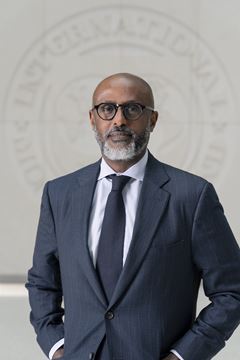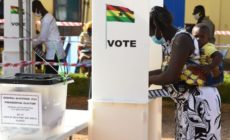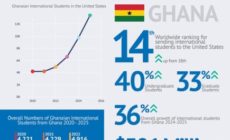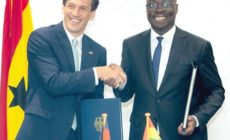Diligently follow bailout programme guidelines – IMF to Ghana
- Posted on
- Comment

The International Monetary Fund (IMF) has emphasised the importance for Ghana to stay committed to its bailout program to fully realize its benefits.
The Bretton Woods Institution stressed the need for effective implementation of structural reforms, especially following the disbursement of the $600 million second tranche to the government.
However, Ghana’s efforts to engage the IMF for consensus on anticipated revenue shortfalls due to the planned suspension of the VAT on electricity following the stiff opposition from the Trades Union Congress (TUC).
Despite this, the IMF’s Director of the African Department, Abebe Selassie, stressed the necessity for Ghana to adhere strictly to the agreed-upon austerity measures to navigate its way out of the economic crisis.
According to him, these measures are vital for Ghana’s economic prosperity.
“What I can say is that going forward, it would be really important that Ghana continues to implement the program that they have developed as envisaged. That is really critical.
“These programs are designed to be implemented over three, or four years. And it is important that Ghana sticks to the course and sees the program being implemented over the next three years,” he said.
However, Mr Selassie noted that Ghana is showing positive performance within the program, with reforms yielding results and indications of economic stabilisation becoming evident.
“Ghana’s program is being implemented effectively. We just went to the board recently with the first program review following, of course, the policies that the government has been putting in place to address the huge imbalances Ghana was facing last year.
“And of course, the official creditors are signalling that they will provide debt relief, consistent with what Ghana needs. So, we just went to the Board a couple of weeks ago. We look forward to continuing to support Ghana, consistent with program implementation,” he added.
In late January, the Bank of Ghana confirmed the receipt of $600 million as the second tranche intended for budget support and currency stabilisation, bringing the total disbursement to $1.2 billion out of the approved $3 billion under the three-year extended credit facility granted in May 2022.
The next review of Ghana’s IMF program is slated for June 2024, aimed at securing the third tranche of around $360 million.










 (Selorm) |
(Selorm) |  (Nana Kwesi)
(Nana Kwesi)